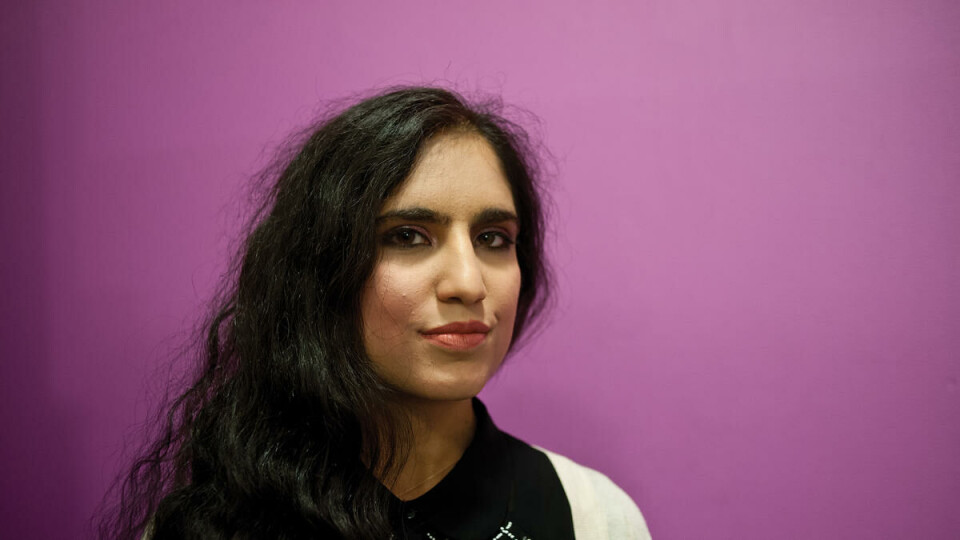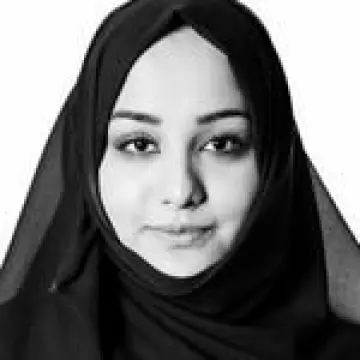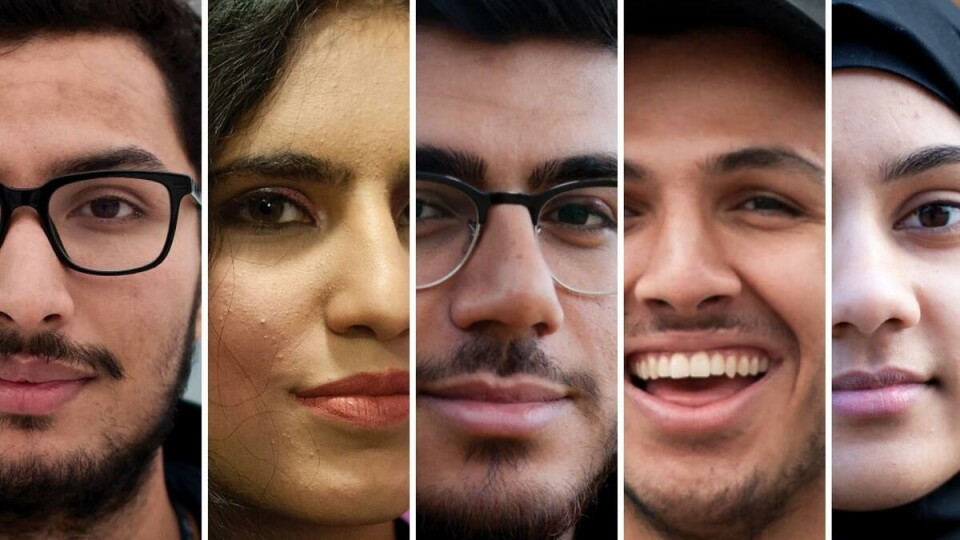
Five Norwegian Muslims respond to Hege Storhaug
Using pictures to create fear and hate is nothing new.
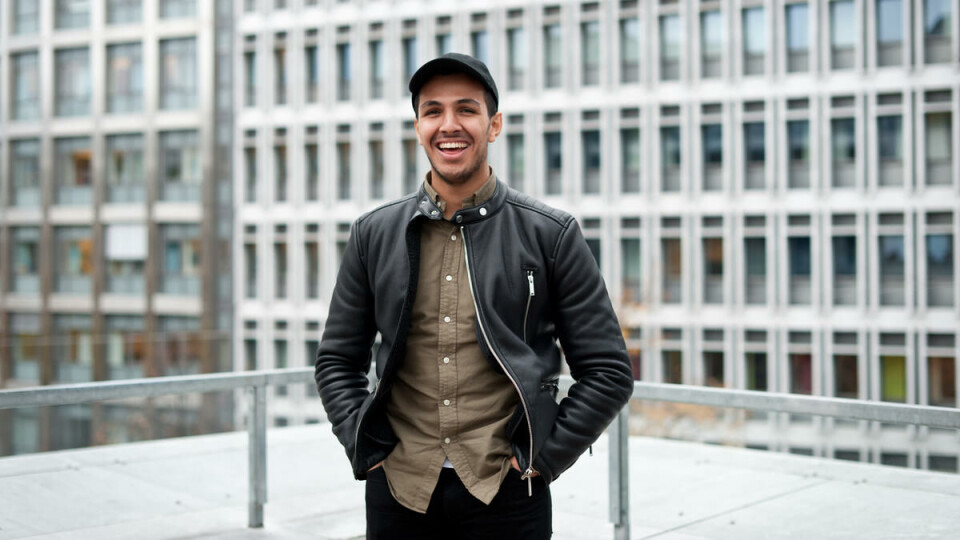
Daoud Maach (21)
Bachelor’s student in Middle Eastern Studies with Arabic at the University of Oslo.
For Daoud Maach, it is important that people across different nations, ethnicities, cultures and religions enter into dialog in order to build bridges and lessen the gap between different opinions and mindsets.
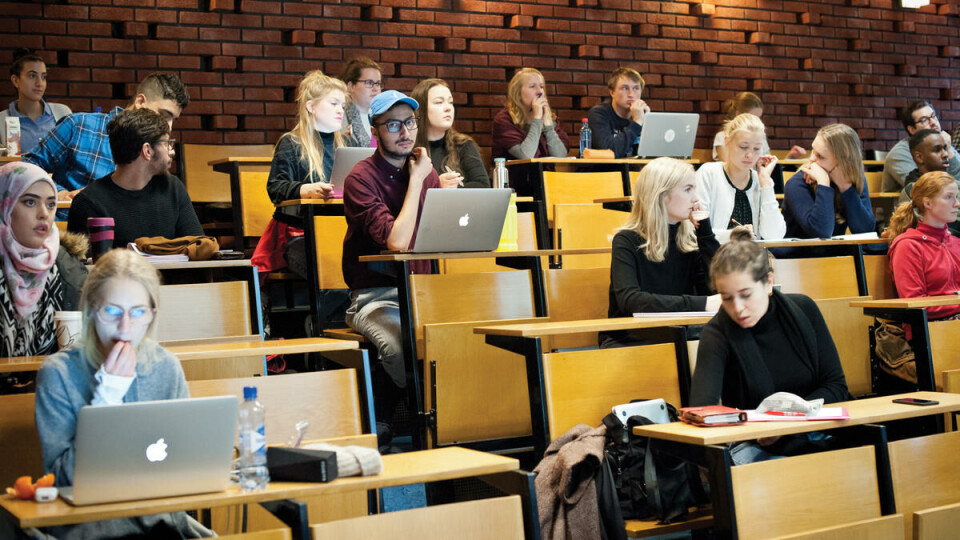
«I am a Norwegian citizen, and I’m proud to be Norwegian,» Maach states.
Daoud Maach studies Middle Eastern studies with Arabic at the University of Oslo. He was born and raised in Norway, but his ethnic origins are Moroccan. However, he thinks we should be careful to define ourselves in nationalistic terms.
«I see myself as a human being, and a member of the international community. We live in a global world, and we shouldn’t divide ourselves into groups. It creates only distance between people,» Maach said.
Apart from his studies, Maach works as a Norwegian teacher at Kristent Interkulturelt Arbeid (KIA), and as a coordinator for Education First (EF), an international exchange program organization. He sees himself as a socially active person, with a keen interest in politics, sociology, and sports. For Daoud, being a practicing Muslim is fully compatible with existing Norwegian values and norms.
«I live my life aligned with Islamic rules, and I always think about the future with Islam in mind. Islam plays a big role in my life, and I seek Islam to find answers to a lot of things. In Norway it is possible to live life freely the way you want. It gives me the freedom to practice my own religion, Maach said.
Maach does not experience his life as a Muslim being in conflict with a «Norwegian» way of life.
«Generally I find things to be of little conflict; I study, I work, and I have a good balance between living according to Norwegian expectations and practicing my religion,» Maach explained.
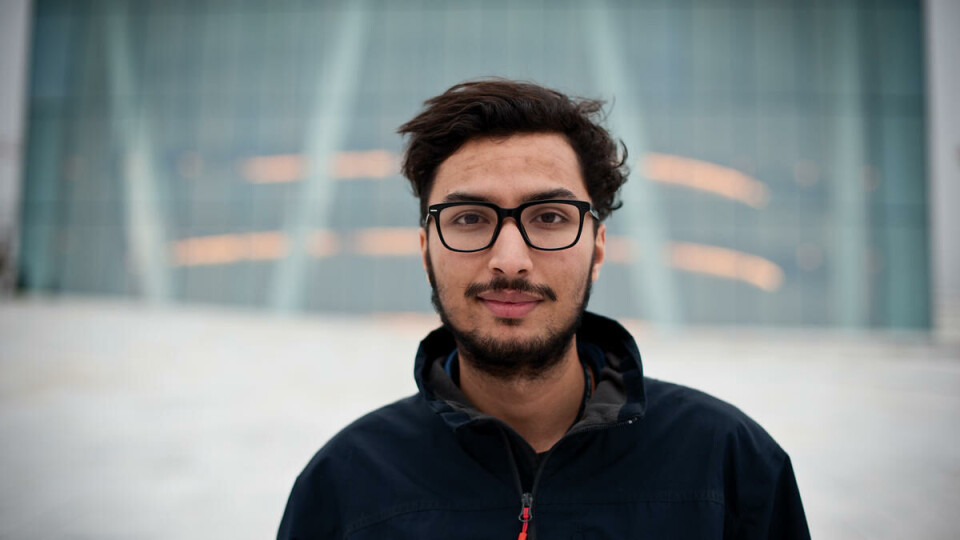
Maach is aware that Islam is a controversial topic today, and thinks one of the reasons might stem from a lack of knowledge about the religion.
«Islam is very complex. There are several ways of interpreting the Koran. The vast majority of Muslims are not what you might call «literal» believers,» Maach said.
Maach encourages dialogue between people across different cultures and religions in order to build bridges between them and lessen the gap.
«It is fully possible to respect each other, even if you don’t agree with one another. Whether we are Muslims, Atheists, or right-wing extremists, we have the possibility of being tolerant with each other – it is possible that we talk to each other,» he added.
Maach has little patience for Human Rights Service’s plans for a photography project.
«The project sounds terrible. What is the purpose? I can only imagine it is to increase polarization and xenophobia. Those are things that I don’t want to see happen, things that I am strongly opposed,» he said. «HRS seems to aim for a degradation of a complete section of society.»
Aruj Shah (22)
Master’s student in Clinical Nutrition at the University of Oslo.
Religious freedom is an important Norwegian value according to Aruj Shah. A potential ban on religious clothing would go against that value.
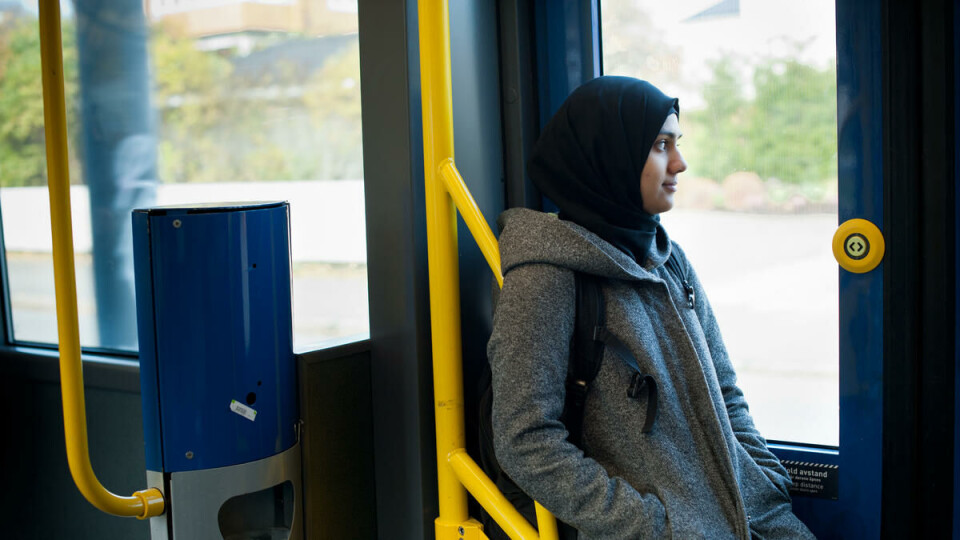
«I am worried about a potential ban on the hijaab. I’m afraid that in the future I might not be able to practice my religion the way I want,» Shah says.
Aruj Shah is 22 years old and studies Clinical Nutrition at University of Oslo. She is also the board member of Mathjelpen, which is the student association for her program. Her ethnic background is Pakistani, but she was born in Denmark, and grew up in Norway.
«Do you see yourself mostly as a Norwegian, or more as a Pakistani?»
«If I meet someone on the street, and they ask me where I’m from; what they really mean is where I am from originally, because of my dark skin and because I’m wearing the hijab. How is it then possible for me to feel Norwegian?» Shah said.
Shah has difficulties with defining herself as Norwegian, and thinks it’s partly the way society divides people into groups.
«We always hear about ‘us’ and ‘them’; ethnic Norwegians versus minorities, Muslims versus non-Muslims. It is sad that we divide ourselves into groups even though we live in a society of which most people share the same values – the only thing that separate us, is our religion and cultural origins. That shouldn’t be any hindrance to us living side by side,» Shah.
Shah does not feel it is difficult to be a Muslim in Norway.
«Norway is a fantastic country to be a Muslim, because people here are accepting,» Shah says.
As a Muslim, Shah seldom experience prejudice as part of her student life, but has nevertheless experienced incidents which left her feeling humiliated.
«Asking for a break to go and do the prayer can sometimes be problematic. One time when I was at a first-aid training event related to my studies, I had to ask for a room where I could go and pray. I was told then I could just go to the toilet and pray. I found that incredibly offensive,» Shah said.
Although Shah does not feel any major obstacles to her daily life as a Norwegian Muslim, it’s becoming more difficult as the debate about the hijab keeps recurring.
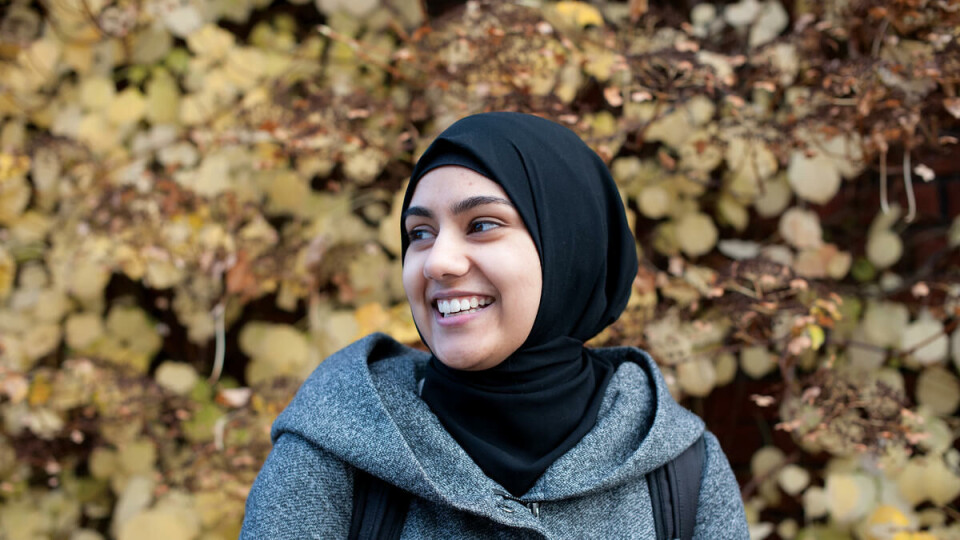
«Religious freedom is an important Norwegian value. One should be allowed to wear whatever one wants, regardless of whether you are Christian, Hindu, Muslim or atheist. Hijab is an innocent piece of clothing, and shouldn’t have to offend anyone. A potential ban would go against the freedom of religion,» Shah says.
Shah feels that the project initiated by Human Rights Service runs the risk of going against its own purpose.
«I think those who are the most radical may use this as an excuse to invite more Muslims to also become radical, allowing them to say, «Look, the Norwegian society doesn’t accept you,» she warns.
Abdellah Elhafedi (20)
Bachelor’s student in Physiotherapy at Oslo and Akershus University College of Applied Sciences.
For Abdellah Elhafedi it is important that people get to know Muslims, in order to understand that most of them are just normal people who practice and include their religion in an otherwise normal day to day life.
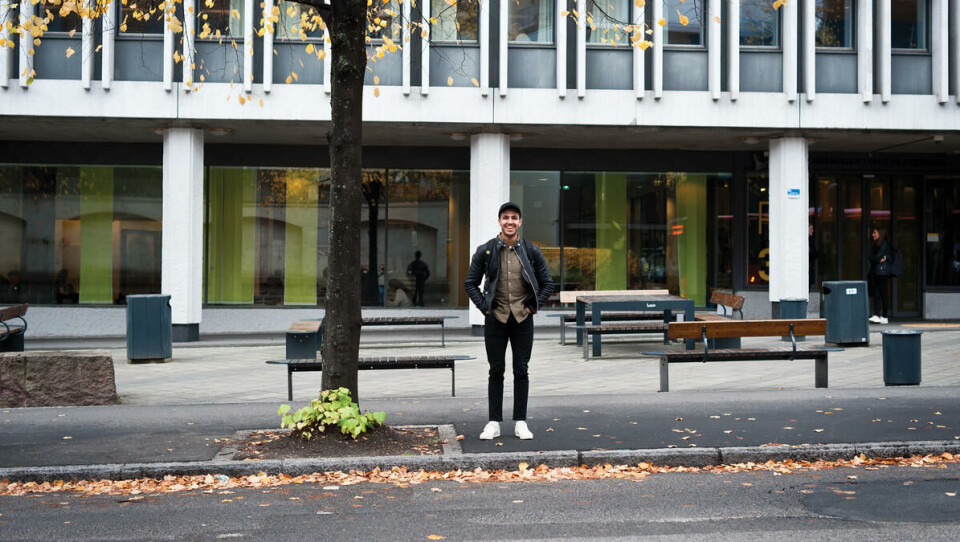
«Of course you can be a Muslim and practice Norwegian values. Islam is about compassion, solidarity, equality and democracy. This is exactly what Norwegian values are,» Elhafedi explained.
20-year-old Abdellah Elhafedi is studying for his first year of Physiotherapy at Oslo University College. In his spare time, Elhafedi likes to work out. He defines himself as a Norwegian-Moroccan Muslim.
«I have one foot in the Norwegian culture, and one foot in the Moroccan one,» he says.
He thinks ethnicity should not get in the way of him being able to define himself as Norwegian.
«I speak Norwegian fluently; I work, pay taxes, and I study. I’m absolutely a part of the Norwegian society,» Elhafedi says.
«Is it possible be Norwegian and practice Islam at the same time?»
«Perhaps that is problematic to radical Muslims, but for most of us who practice our religion as a normal part of the day, it is not a problem at all,» Elhafedi replied.
He is aware that there can be misconceptions about Muslims, especially considering the largely false image portrayed by the media of Islam today. His answer to this is quite simple.
«Get to know a Muslim! It is important for people to see that most Muslims practice their religion in a very mundane sort of way. We are not terrorists, we are not the Islamic State. We are just like everybody else,» he said.
Even though Islam gets criticized in the media daily, Elhafedi does not necessarily see this as a problem.
«It is healthy to criticize, not bad. But when you do criticize, you need to make sure that its grounded, and not just criticize aimlessly. When you don’t have a legitimate reason to criticize, or you do it without knowledge, it turns into hate, which is not ok,» he said.
Karrar Al-Amri (22)
Bachelor’s student in Religion and Society at the University of Oslo.
Karrar Al-Amri wasn’t born in Norway, and didn’t grow up here. Still he sees it natural to define himself as Norwegian.
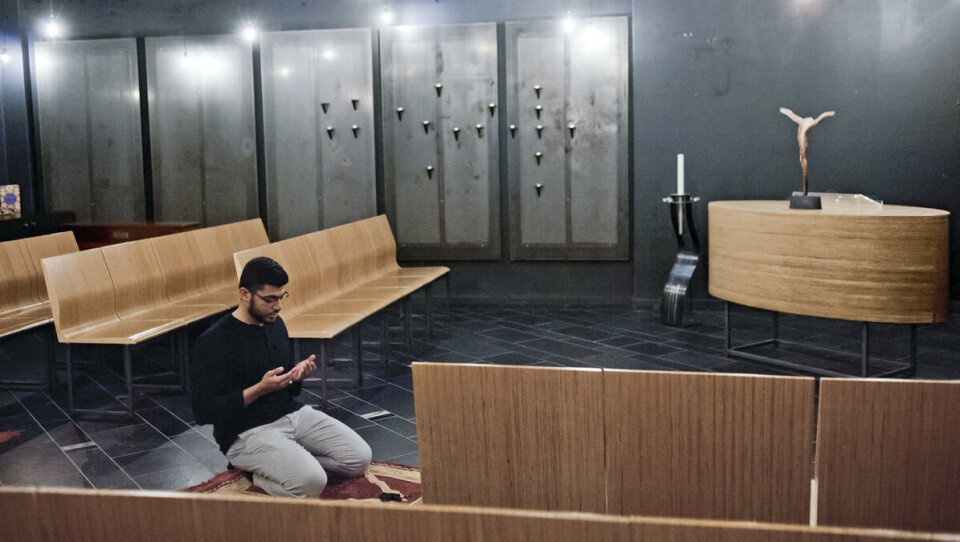
«What does it mean to be Norwegian? The colour of your skin? Your religion? Or what you eat? For me being Norwegian means carrying with you the thought of inclusiveness. This implies that people of different skin tones, or various religions and ethnicities, accept each other and live together,» Al-amri says.
Karrar Al-Amri studies Religion and Society at UiO. He is the deputy chairman of the Theological Student Committee, and came to Norway from Iraq in 2005. He says he doesn’t understand Hege Storhaug’s photo project.
«I’m a person who studies and work hard, and spend most of my time at my faculty. And then I can fall victim to this project, just because on a Friday I step out from a mosque and have my picture taken; becoming a symbol of everything that is threatening to the Norwegian society,» Al-Amri said.
Although he was not born in Norway, he has no doubts as to how he defines himself.
«Being Norwegian means upholding Norwegian values. An important Norwegian value is acceptance. This means you accept people as part of society, regardless of their ethnical background or belief. By this definition, I’m Norwegian,» Al- Amri explained.
«So then the values represented by Sylvi Listhaug, are not Norwegian values?»
«No, not at all. Nobody holds a clear definition to what Norwegian values are, but it is certainly not the same values that Listhaug presents, such as eating pork and drinking alcohol. You will also find ‘ethnic Norwegians’ who stay away from those things,» Al-Amri said.
What he means is that values are more than the things you can physically grasp.
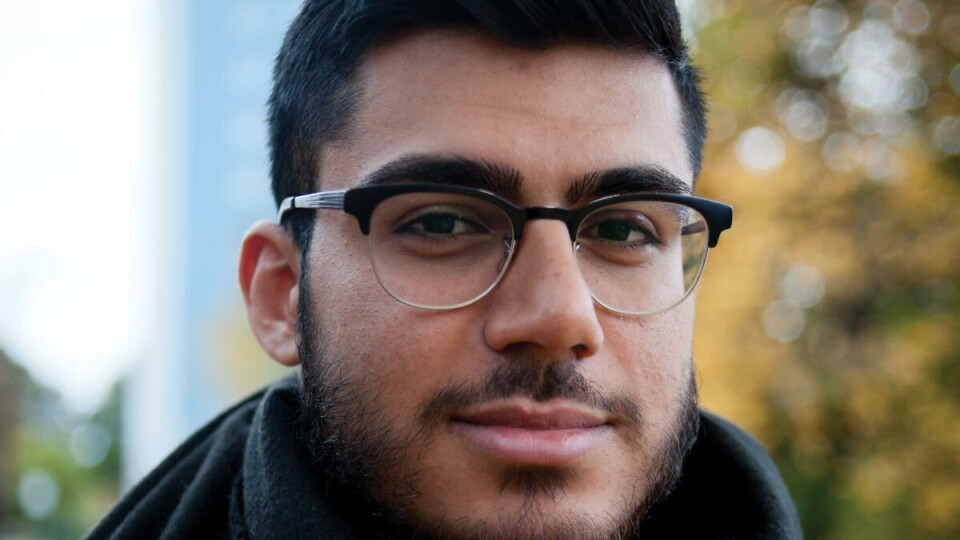
«Values can’t be food or drinks. Values are actions that you place highly. In Norway, one such value is to respect all humans regardless of their background or faith,» he added.
In addition to theology, Al-Amri is also interested in football and Brazilian wrestling. He rarely experiences his religion colliding with a Norwegian way of life.
«I don’t know of any direct conflict between me as a Muslim and me as a Norwegian. Here at the Faculty of Theology, people are generally more open, and people here have nothing against neither my faith or my way of life,» he said.
«Is it hard for you to keep friendly relations to non-Muslims?»
«I think I have more atheist friends than I have Muslim friends. As long as we accept and respect each other, I don’t see how it should be of any problem. Islam has taught me to have respect for others regardless of their faith,» Al-Amri said.
Memoona Saleem (22)
Bachelor’s student in Psychology at the University of Oslo.
Memoona Saleem wants to make the world into a better place. As a board member in the humanitarian organization A Step Closer, she sees the work of the organization as one step closer to a better world.
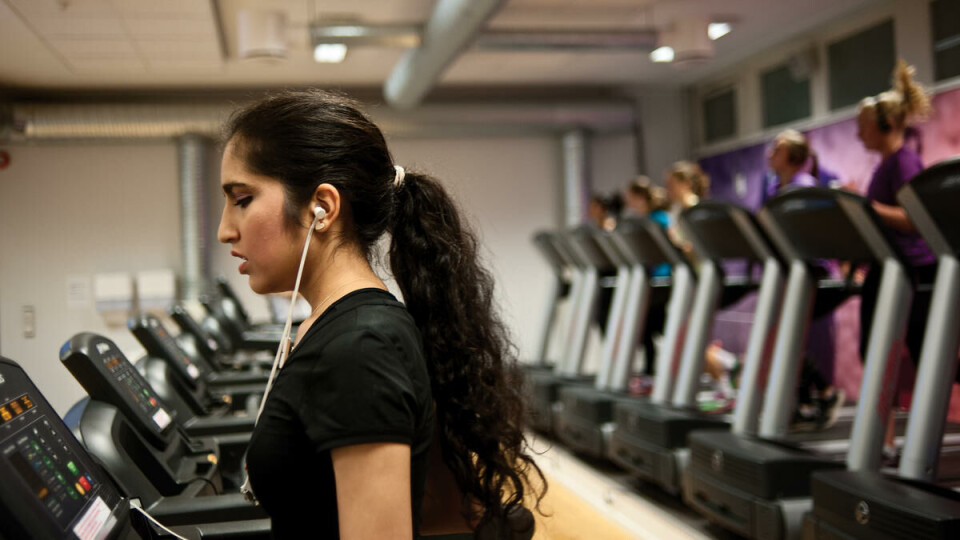
«The best thing about being a Muslim I think is the peace it gives me. I have struggled to feel at home in both the Norwegian as well as the Pakistani culture, whereas with Islam I have found the identity that I was looking for. In difficult times, Islam gives life meaning; it’s like a burning light when everything else feels dark,» Saleem explains.
Memoona Saleem is 22 years old and studies for a bachelor in Psychology at UiO. Her ethnic origin is Pakistani, and she is the head of marketing for the student association A Step Closer.
«I’ve always wished to contribute to society with what I can. I’ve always wanted to make a difference to the community around me, and to help make the world a better place. By being a board member of A Step Closer, at least I can contribute a little,» she says.
Saleem describes herself as a socially engaged and observant Muslim. Being socially engaged is important to her, because it goes hand in hand with Islam.
«Islam teaches us to value and look after the people around us. Fighting against injustice, helping others who aren’t as privileged as ourselves, is fundamental in Islam,» she says.
«Is it possible to live by Norwegian and Islamic values both at the same time?»
«I think that as long as those Norwegian values don’t collide with Islam, following them should be simple. It depends on what you mean by it. The first things that come to my mind are values such as openness, equality, tolerance, and freedom of expression,» she said.
These are all important values within Islam, she added, «In which case living by those same values becomes natural to me.»
Saleem thinks that the media debate revolving around Islam is non-constructive.
«There are nuances amongst Muslims, and people need to start realizing this. It has come to a point now where the debate keeps going in circles, leading us nowhere,» she added.
Saleem worries this will have a negative effect on society.
«People might be scared and too afraid to get to know Muslims or other people of a different ethnic or religious background than themselves,» she said. «We might end up with a society where all ethnic or religious groups just keeps to themselves; unwilling to get to know with others.»
